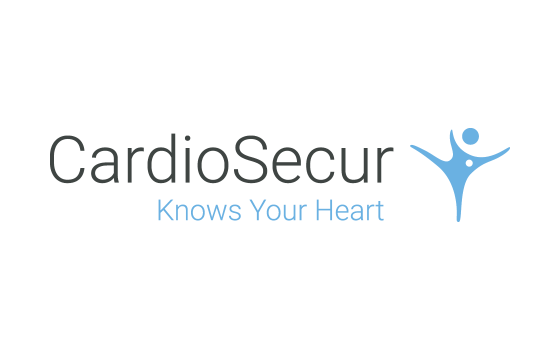 The study "CardioSecur® in the preclinical setting - When time does matter" of the University of Heidelberg confirms the advantages of the mobile ECG in acute cases. This was demonstrated by applying CardioSecur during a period of more than 7 months in ambulances in the area of Heidelberg, Germany.
The study "CardioSecur® in the preclinical setting - When time does matter" of the University of Heidelberg confirms the advantages of the mobile ECG in acute cases. This was demonstrated by applying CardioSecur during a period of more than 7 months in ambulances in the area of Heidelberg, Germany.
85.7 % of participating emergency physicians stated that CardioSecur's 4 electrode system was much faster and easier to position in emergency situations and would prefer using it over a conventional 12-lead ECG. Additionally, CardioSecur's 22-leads provide more data (12 leads + V7-9, VR3-VR9) than a standard ECG. The 360° view of the heart enables more comprehensive diagnoses, for example of a posterior myocardial infarction, and can be vital in acute situations. Consequently, the study confirms the efficiency of CardioSecur in time-critical preclinical settings. The system also significantly reduces the risk of electrode misplacement in obese patients and women.
Time plays a crucial role in patients with suspected acute coronary syndrome, as the heart muscle begins to die off only 20 - 60 minutes after the coronary vessel’s blood supply has ceased. During the so-called "golden hour" immediate action is essential to minimize heart muscle damage and optimize patient recovery. Conventional 12 lead ECG systems require 10 electrodes and their placement affects the quality of the ECG significantly. Placement of the 6 chest leads can be particularly complex and time-consuming due to very different body anatomies. CardioSecur’s 4 electrode based 22-lead ECG is faster and easier to position, while also providing more data to detect posterior, lateral and anterior myocardial infarctions.
"Currently, 12-lead ECG systems provide insufficient data to detect posterior myocardial infarctions because in practice the electrodes are rarely placed on the patient's back - even though the ESC guidelines require it," says Felix Brand, founder and CEO of CardioSecur. "The repositioning of the dorsal electrodes also results in an asynchronous ECG (anterior and posterior). CardioSecur is currently the only ECG that meets the cardiological guidelines of the ESC without need for repositioning the electrodes. CardioSecur has already helped to detect posterior myocardial infarctions that were not visible on conventional 12-lead ECGs."
For further information, please visit:
http://www.mobile-ecg.com
About Personal MedSystems GmbH
Personal MedSystems GmbH develops and sells ECG systems and services for private users and healthcare professionals under the name CardioSecur. CardioSecur Active is an innovative, 15-lead, clinical-grade ECG for personal use. In a few seconds, it generates personalized feedback regarding changes in the heart's health and provides a simple recommendation to act regarding whether to see a doctor or not. The entire system consists of a 50g light cable with four electrodes, the complimentary CardioSecur Active App and the user's smartphone or tablet. CardioSecur Pro is the mobile, clinical ECG solution for physicians and medical professionals. CardioSecur Pro operates based upon guidelines from the European Society of Cardiology by providing 22 leads, making a 360° view of the heart possible. It is the only system that thereby recognizes infarctions of the anterior, lateral and posterior walls of the heart.